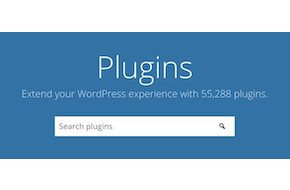
Learn how to pick out the best plugins from the WordPress repository
Look for plugins that are supported, secure, and have solid performance
One of the benefits of an enormous community like WordPress is the plethora of tools you can choose from in the plugin repository and beyond. But it’s also a double-edged sword: with so many options available, how do you find the gems from the riffraff? How can you choose the best plugin for your needs? Not everything available is even necessarily good – just about anybody can post a plugin to WordPress, and while their team does their best to audit what’s available, there’s only so much time in the day. And a plugin that may have once been a good option can change with later updates or changes to best practices. There are three core tenants to look for when choosing a plugin, learn more about them below!
Choose plugins that are properly supported
One of the most important elements to look at when considering a potential plugin is when it was last updated, and what WordPress version it’s been tested up to. Coding languages and WordPress itself are not static, but constantly changing and updating. Therefore, you want to pick a plugin that’s going to keep up with these changing elements. If a plugin hasn’t been tested to the most recent subversion of WordPress, that’s usually fine. But if it’s several major releases behind, or just hasn’t been updated in more than 6-12 months, it’s likely only going to get less and less supported from there. You can save a lot of headaches later down the road by choosing a plugin that’s more likely to be supported.
More than support for coding practices too, it’s worthwhile to look into the support thread on the WordPress repository to see if the customer support looks solid. If you run into a problem with the plugin, it’s always nice to have a safety net you can rely on from the plugin’s support staff. Reviews can sometimes hint at this too, there’s not much that will get people to leave a good or bad review than a memorable experience with customer service.
Make sure the plugin is secure
Another key factor when choosing a plugin is how secure the code is. If you’re a developer yourself, then you know the types of coding practices to look for when evaluating a plugin candidate. But even if you can’t tell PHP from Greek, there are still some steps you can take to do your due diligence without looking at the code itself.
One initial indicator is: how many people are using it? You can find a count of how many active installations of the plugin there are right on the WordPress page. WordPress is full of experienced developers who know what a secure plugin looks like, and word of mouth is still a powerful factor when those people recommend plugins to other developers and clients. If a plugin has lots of active usages, it’s likely an indicator that the code is solid. But if there are less than 10,000 or 20,000 users of a plugin, it’s just won’t be as thoroughly vetted as plugins with wider sample sizes.
Beyond that one indicator, you can also browse through the support forums or even run a quick Google Search. If a plugin has been found to be insecure, there’s a solid chance that someone has reported on that fact. Be sure to check the date though – it’s possible someone found a vulnerability, but the developer was quick to address it and release an update.
Test the performance effects of activating the plugin
Even plugins that are well-reviewed, lovingly maintained, and thoroughly vetted can still drag down your site’s performance. Some plugins are just literally big: lots of templates and features that result in piles of code that you may never have to use, but still get loaded on your site. Even smaller plugins can be built with lots of cases or just non-ideal practices that put unnecessary strain on your WordPress site.
Before you install a plugin, click through your site and see how it runs. Running a test through a tool like GTmetrix is also a good idea as a comparison point for later. Then after you install a new plugin, head to a page where you know the features of that plugin are in use. Do you notice the site seems slower than before? If you run another test in GTmetrix, did the site take a hit in performance? And the big question: is it any hit in performance you see worth the features that the plugin is offering? It’s ok if the answer is yes! It’s just important to evaluate that question on any new plugin, especially the big ones.
Need help selecting a plugin for your site, or want to have a custom plugin developed by people who know how to follow all of these tenants? Reach out to us for a free quote!



